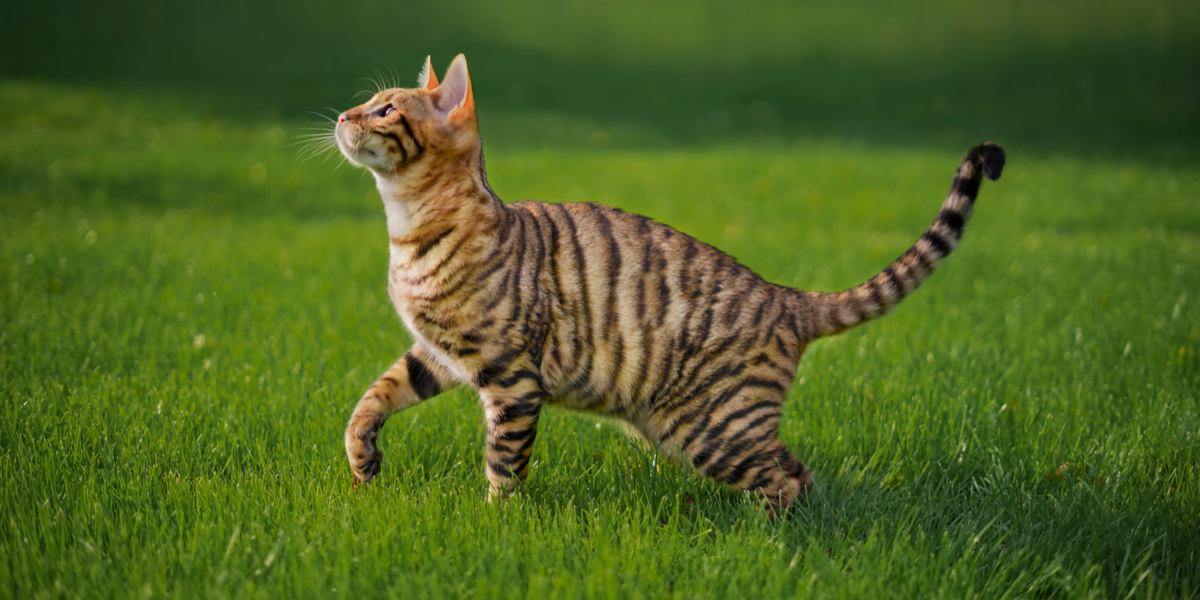
When you hear about animals being trained to assist humans, the stories often involve dogs… or maybe even a less common breed, like a miniature horse. After all, it’s rare to hear stories about bomb-sniffing cats or guide cats for the blind.
Why is that? Are other species, such as dogs, smarter than domestic cats? That’s a complex question with no easy answer.
About Feline Intelligence
Assessing feline cognitive abilities presents a number of unique challenges. While dogs are typically eager to please and can be trained to perform a wide variety of tasks in exchange for praise or food rewards, our cats are often a bit less interested in learning sorts of tasks than dogs. In fact, cats are notoriously unreceptive to the idea of participating in research studies!
The notoriously aloof nature of cats can create unique challenges in assessing feline intelligence. This requires researchers to be a bit more creative in their approach, making it difficult to compare the intelligence of cats to other species.
What We Know About Cat’s Brains?
The average feline brain is approximately 5 cm (2 in) long and weighs 5–30 g (0.88–1.06 oz). Although feline brain size is smaller, both objectively and as a proportion of body mass, than both dog brains and human brains, the structure of a feline brain is very similar to a human brain.
Also Read: 10 Fascinating Cat Brain Facts
Like humans, cat brains have complex surface folding patterns that increase the relative surface area of their brains. This increased surface is thought to improve cognition (complex thinking) and overall brain function.
Are Cats More Intelligent Than Dogs?

Despite those stark contrasts, there are some surprising similarities between cats and dogs.
When evaluating the intelligence of different animal species, we often look at the number of neurons within an animal’s brain.
A 2016 study calculated the number of nerve cells within the cerebral cortex of the brain (the region of the brain that is thought to most directly contribute to intelligence) in a number of different animal species.
Researchers found that cats have nearly twice as many cortical neurons (300 million) as dogs (160 million), which was taken as evidence that cats are smarter than dogs.
While contradictory findings have been observed in other studies, these contradictory studies involved small sample sizes and therefore shouldn’t be taken as the last word on the dog vs. cat intelligence debate. Although a number of studies have been performed, clear, consistent results are currently lacking.
Realistically, it’s important to realize there are significant challenges in calculating exact neuron numbers within the brain of a particular species. Counting neurons is unlikely to ever settle the age-old debate of which species is smarter, cats or dogs?
Also Read: Are Cats Smarter Than Dogs? Scientists Finally Have the Answer
However, it is safe to say that cats have complex brains that bear a number of similarities to our brains. The brain structure of cats suggests that they are intelligent animals that are capable of problem-solving.
How Smart Are Cats Compared to Humans?
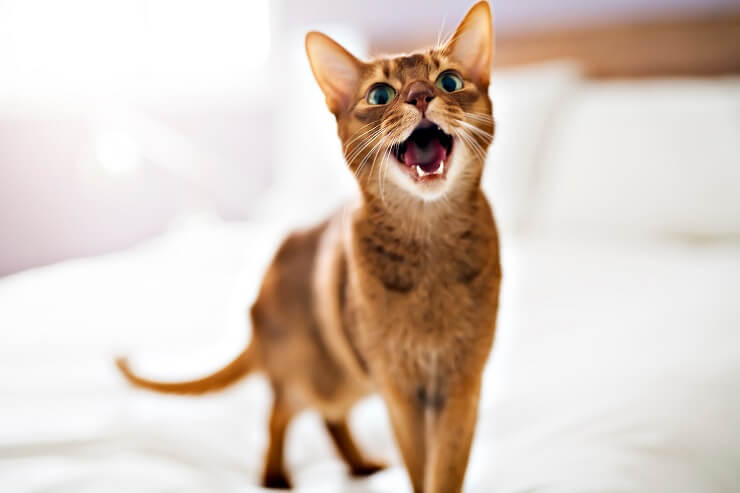
But what about your cat, specifically? It might be time to give your cat an intelligence test.
A number of at-home tests have been suggested to help cat owners assess animal intelligence These tests compare a cat’s performance on certain tasks to the expected performance of a human child of a given age.
How Smart Is Your Cat?
The first test should be performed in a quiet room, using your cat’s favorite toy.
Allow your cat to see that you have the toy, then hide it behind a solid item (like a cardboard box). Does your cat think the toy has disappeared, or does she go searching for the toy behind the box? If your cat goes searching for the toy, she’s demonstrating a grasp of object permanence.
This refers to the idea that objects continue to exist, even when we can’t see them; the toy doesn’t just disappear because it’s no longer visible. In humans, this concept is understood at approximately one to two years of age so, if your cat passes this test, she is at least as smart as a one-year-old human.
Next, take a toy that can move (like a ball you can roll or a wind-up toy) and show it to your cat.
Allow your cat to see how it moves, then place the toy where it will travel behind or underneath a solid item.
Does your cat correctly predict where the toy will exit, or does she keep looking at the spot where the toy disappeared? If your cat correctly predicts where the toy will reappear and waits for it at that location, your cat is as smart as the average two-year-old!
While those two tests are fun, human capabilities become a bit less predictable after toddlerhood.
Kids all develop at different paces, which makes it difficult to set standardized ages for mental test performance.
How to Test Cat Intelligence
Still, there are a number of other questions that you can ask yourself in order to assess your cat’s intelligence.
- Is your cat reluctant to go into their cat carrier? If so, this suggests that your cat has the long-term memory to recall previous negative experiences associated with the carrier (such as veterinary visits or long car rides).
- Does your cat ever scratch at a particular exterior door, wanting to go outside, even though you have never let her out through that door in the past? If so, this suggests that your cat has learned the purpose of that door through observing you and your family members.
- Has your cat ever opened a cabinet to access cat food or some other desirable object? If so, this behavior demonstrates your cat’s problem-solving skills.
- Has your cat trained you to feed her at a particular time, using meows or some other attention-getting behavior? If so, this indicates an understanding of cause and effect (meowing or another behavior causes you to put food in the bowl!) and a grasp of the concept of time.
Conclusion
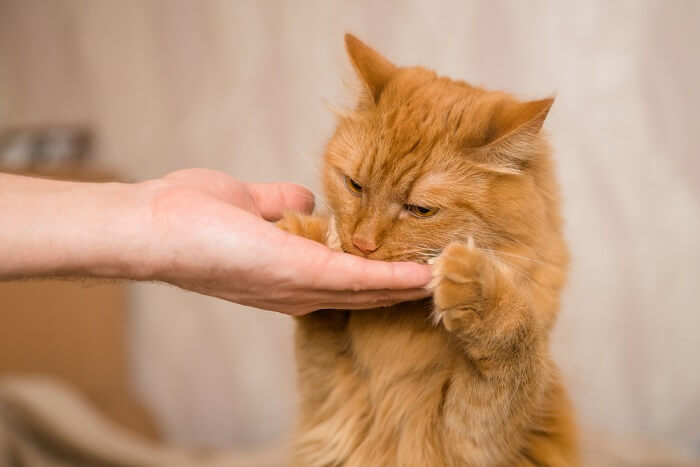
Cats have evolved to demonstrate their intelligence in ways that may not seem immediately apparent to us humans. For this reason, it can be challenging to accurately and objectively assess your cat’s intelligence. The available evidence suggests, however, that cats are much smarter than many people give them credit for!
Frequently Asked Questions
How smart is a cat compared to a human?
There is no good method for comparing feline intelligence to human intelligence, but performance on mental function tests suggests that cats are at least as smart as human toddlers. They may be even smarter, but they are often unwilling to participate in cognitive testing.
What is the most intelligent cat breed?
While it’s a challenge to quantify feline intelligence, many cat owners regard Abyssinians, Siamese, Bengals, and Burmese cats as exceptionally intelligent. Their perceived intelligence is largely based on the way in which they interact with their human owners.
Which is smarter, cats or dogs?
The debate between cats and dogs is an endless one. When it comes to intelligence, there is no clear data that can settle this debate one way or the other. Numerous studies have been performed, but results vary between these studies.
What is the IQ of a cat?
There is no equivalent to the IQ test for cats, and since IQ is based entirely on the average score of a given human population, it doesn't make sense to apply that distribution to another species.






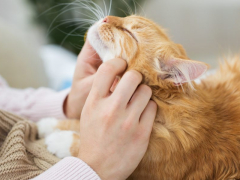
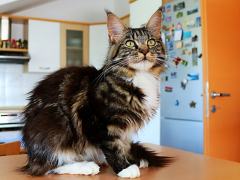
Question……our cat has started licking EVERY THING! Clothes, walls, doors, floor, counter, faucet, legs, chair, hand….any and everything, nothing has changed, no stress, plays in our fenced area, looks out window. Can’t figure it out!
Hi Vicky, that’s a curious question! It’s possible that your cat has a nutritional deficiency and is trying to fill it through licking things around the home, though this is particularly odd given that nothing else has changed. I would take her in to see a vet for more conclusive answers. Thanks for stopping by!
I do not have a cat at all
That is an incorrect quote of the Wikipedia material. The text there refers to EQ, encephalization quotient, not IQ, intelligence quotient.
Thank you. Corrected.
It takes years of love and trust for cats to reveal their hidden self.
They can understand inferred human threat. One of my cats waited for me in cold pouring rain, on a regular walking route of mine, through worry. Called out alerting me, we walked home together. Due to a situatiion in the neighbourhood (long story).
Both cats would meet and greet upon my return after a day out and say ‘hello’ in english. My female cat could count to five, indicated by using her tail. This developed from a game we used to play with her.
When I fell out with my ex, they refused to sleep in bed with me for fear of rejection from her. And there’s more…
sorry to break it to u but “hello” in cat isnt english. all cats do it its just a vocal sound they make to get attention, a cat winking or curving theyre tail would be a hello,
You probably will find this difficult. A bright cat has an IQ around 80 (How do I know this? You wouldn’t believe it). For it’s size that’s shocking.
For example. When brought up with young children, they will use english when stressed (locked outside for being naughty), saying ‘hello’ with varied stressy intonation; whilst knocking on the cat flap.
Usually know about 10 minutes ahead of a delivery arriving with a stranger. They prefer it if you are at home mostly (even when they’re out and about), so being self employed is a plus.
They will worry when the children are late from school; they know what time they should be home.
They know right from wrong also. And more.